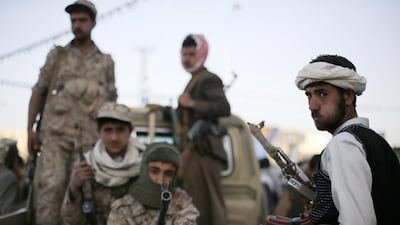The UN Security Council has acted constructively with its unanimous vote to impose arms embargoes on Houthi rebel leaders, former Yemeni president Ali Abdullah Saleh and his son, Ahmed. While some might be tempted to see the battles in Yemen as a fight between rival militias in a failing state, the 14-0 vote clearly identifies the aggressors.
Russia abstained and that too is meaningful. Russia’s leaders are also in the process of selling a sophisticated missile system to Iran, which is backing the Houthi rebels and has helped them take over large sections of Yemen. Its decision not to use its veto is significant in that context.
The resolution was presented by Jordan and drafted with the help of the Gulf states. It also puts Houthi leader Abdul Malik Al Houthi and Ahmed Saleh on the UN’s sanctions blacklist. Any assets they have in the US will be frozen and Americans are now banned from dealing with them. Former president Saleh and two other Houthi leaders, who are the subject of the arms embargo, were put on a similar blacklist by the UN last November.
It is a little over three weeks since the UAE and other members of the Saudi-led Operation Decisive Storm began bombing Houthi forces and renegade Yemen military units loyal to Mr Saleh. Now, the UN resolution shows that the world community is as fearful as this region of Yemen descending into a Syrian-type civil war.
In The New York Times this week, for example, president Abdrabu Mansur Hadi described the Houthi forces as another Hizbollah in the making. One need only look at the destabilising role the Iran-backed militia plays in Lebanon and now Syria to see the potential for anarchy if the Houthis assume a similar role in Yemen.
The UN resolution also calls for a negotiated end to hostilities. Given the Houthis’ and Mr Saleh’s habit of saying one thing and doing the opposite, one might be cynical about their ability to negotiate in good faith. However, they now can be in no doubt that there is force behind those who back Mr Hadi.

